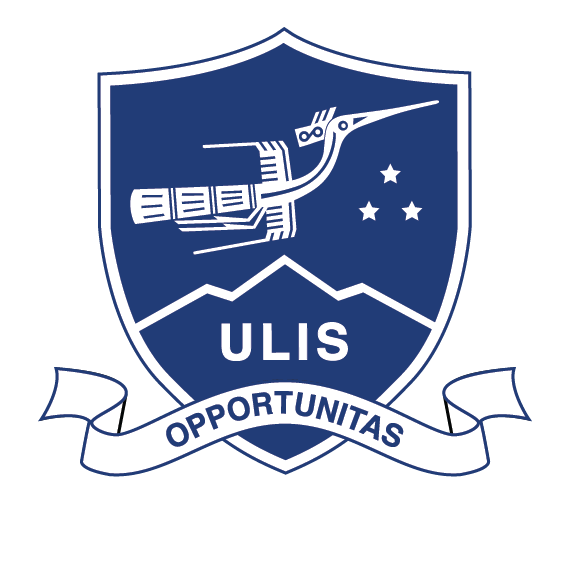[UNC2025] International Conference on Linguistic Fieldwork: Methods and Theory
On September 27th, 2024, at the Vu Dinh Lien Hall, ULIS-VNU organized the international conference “Linguistic Fieldwork: Methods and Theory”. The event was part of the national conference ‘Research and Teaching of Foreign Languages, Linguistics, and International Studies’ (UNC2025) and used three languages: English, Vietnamese, and French (with simultaneous interpretation).
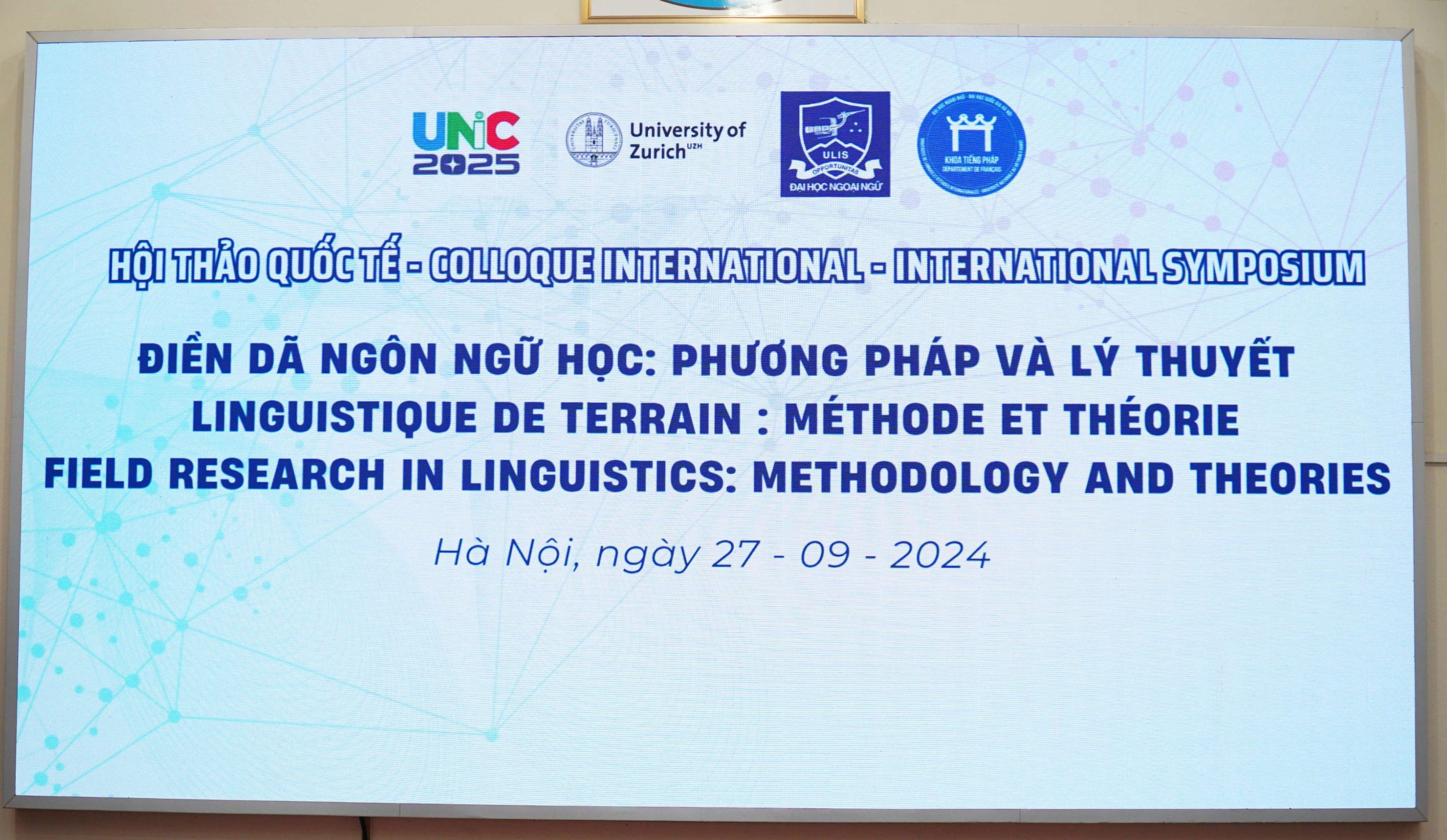
Attending the conference were Vice President Lam Quang Dong; speakers from Rennes 2 University (France), Zurich University (Switzerland), and Phenikaa University; lecturers specializing in language, culture, teaching methodology, and international studies from various faculties and departments; postgraduate students, doctoral candidates, and interested staff members.
Delivering his speech at the opening ceremony, ULIS Vice President Lam Quang Dong welcomed the participants and emphasized the importance of expanding the boundaries of linguistic research. Highlighting the dynamic nature of language, the Vice President stated that the international conference on “Linguistic Fieldwork: Methods and Theory” aimed to exchange and discuss theories and methods of fieldwork in linguistics and sociolinguistics.
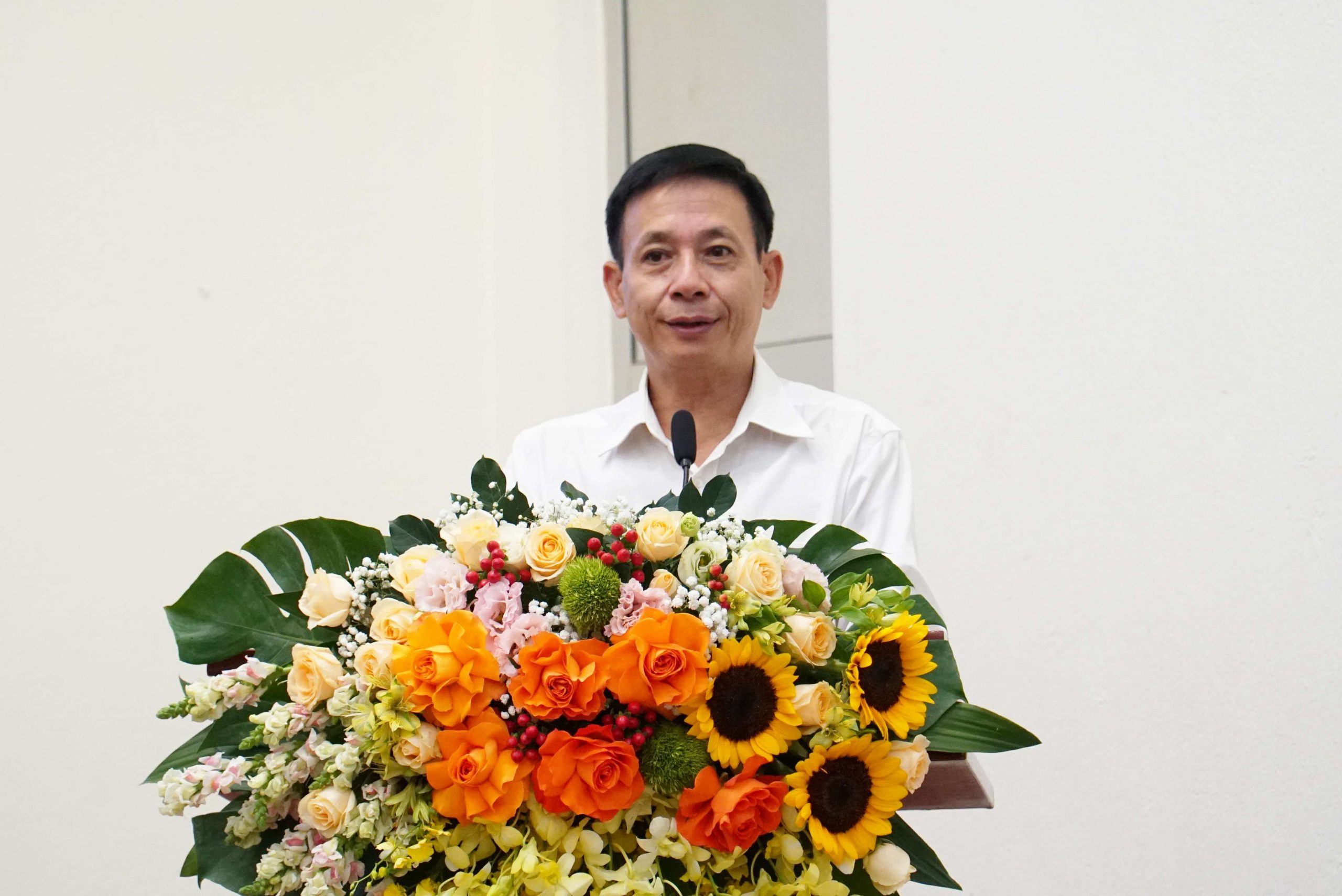
At the conference, Prof. Philippe Blanchet from Rennes 2 University (France) presented the keynote report on “An Ethnosociolinguistic Approach through Complex Thinking.” In his report, he discussed the principles and methods of ethnosociolinguistic research. His report provided fresh and profound perspectives, enriching the content of the conference and opening up new research directions in the field of ethnosociolinguistics.
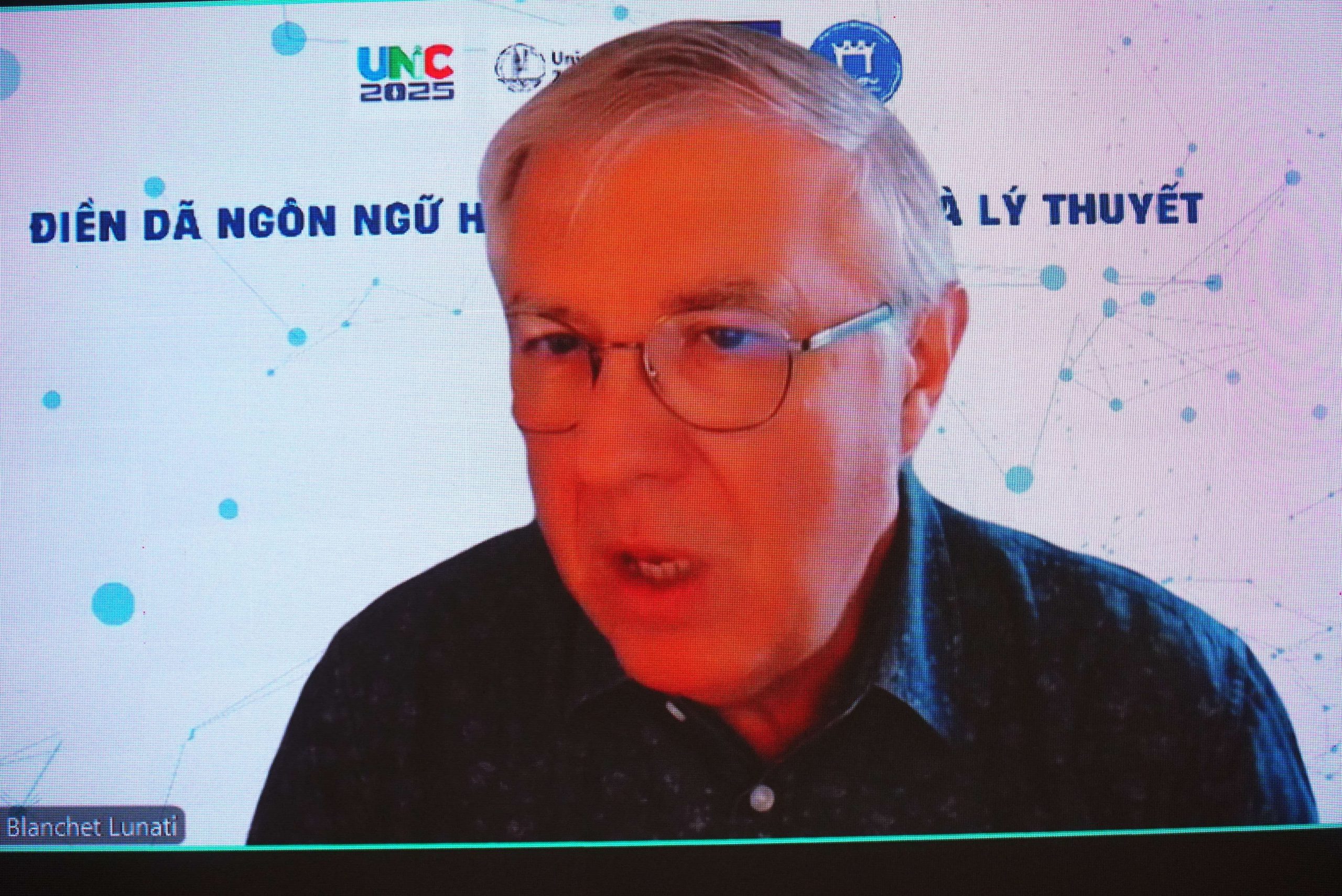
After the plenary session discussion, the conference continued with the presentation of eight reports in two parallel panels, offering new research and perspectives on language studies. These reports not only provided insightful information but also opened up opportunities for international collaboration in this field.
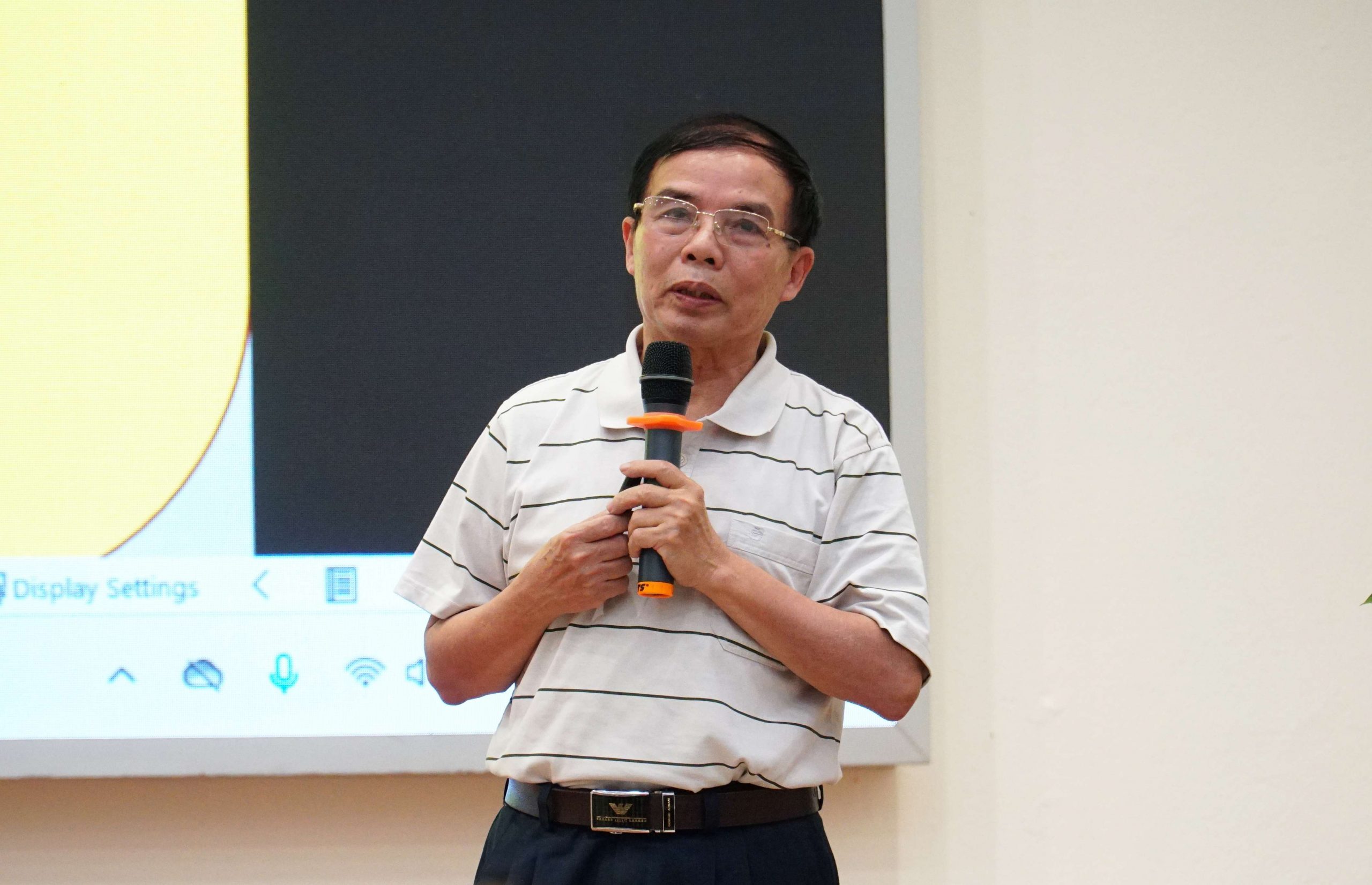
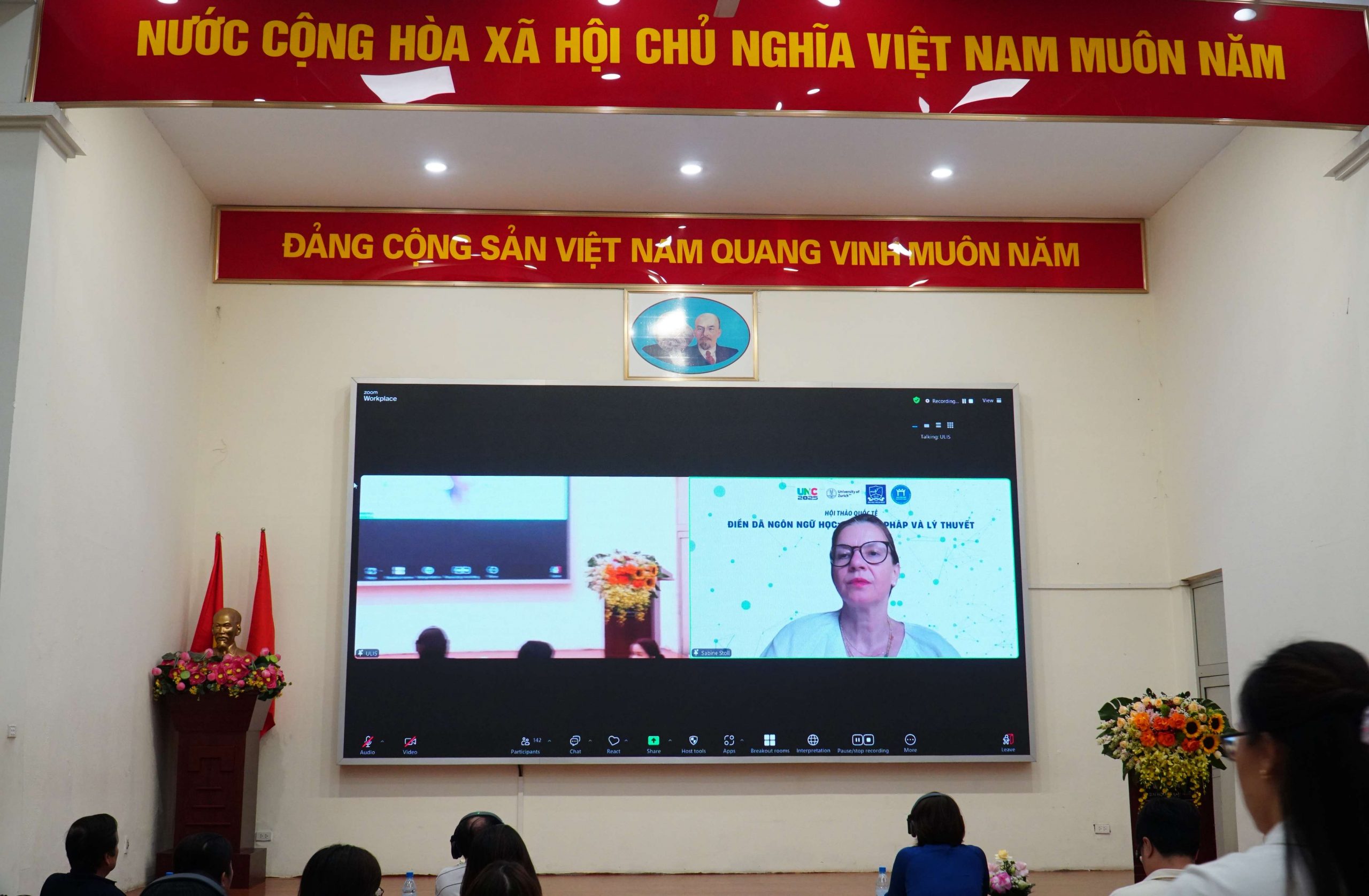
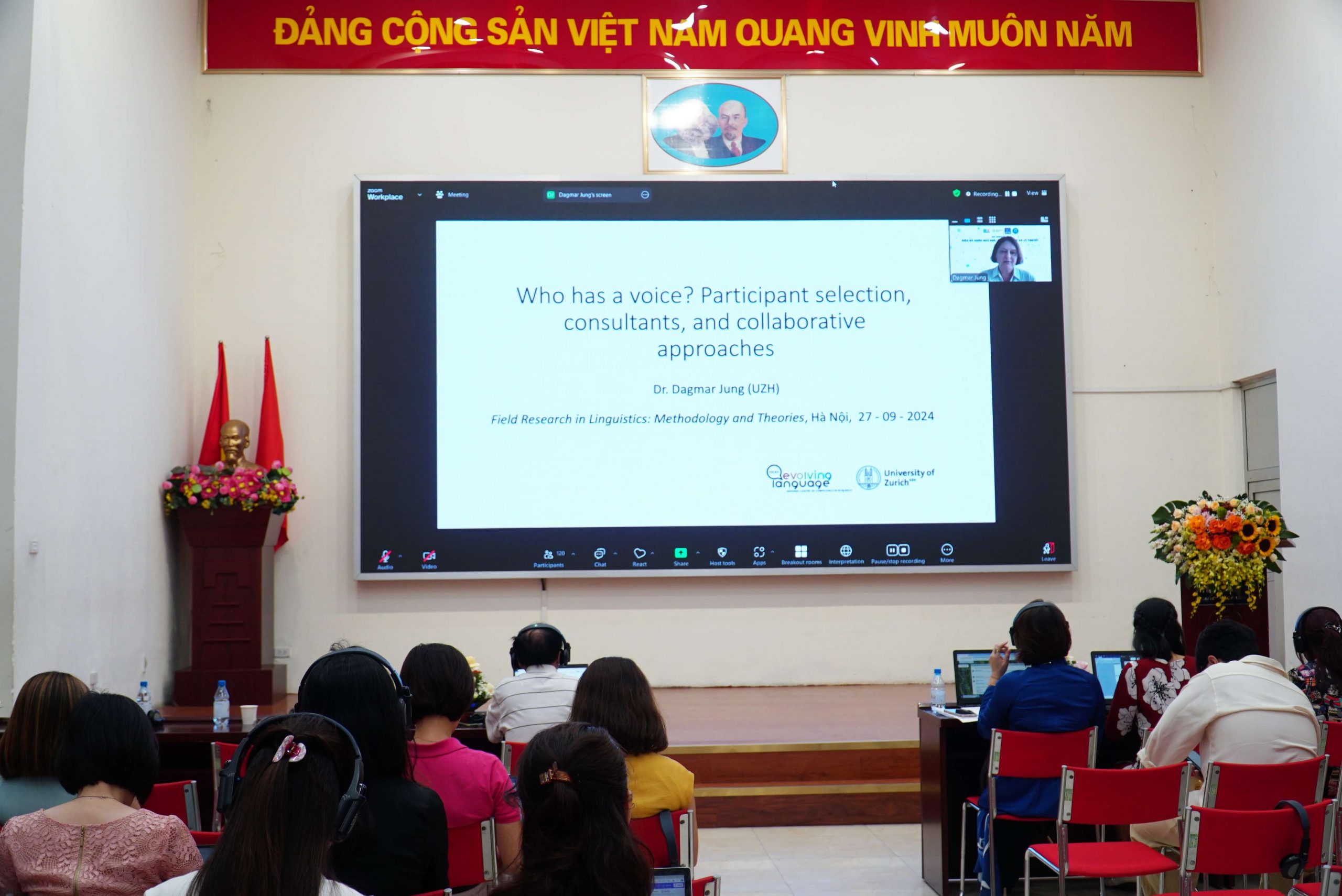
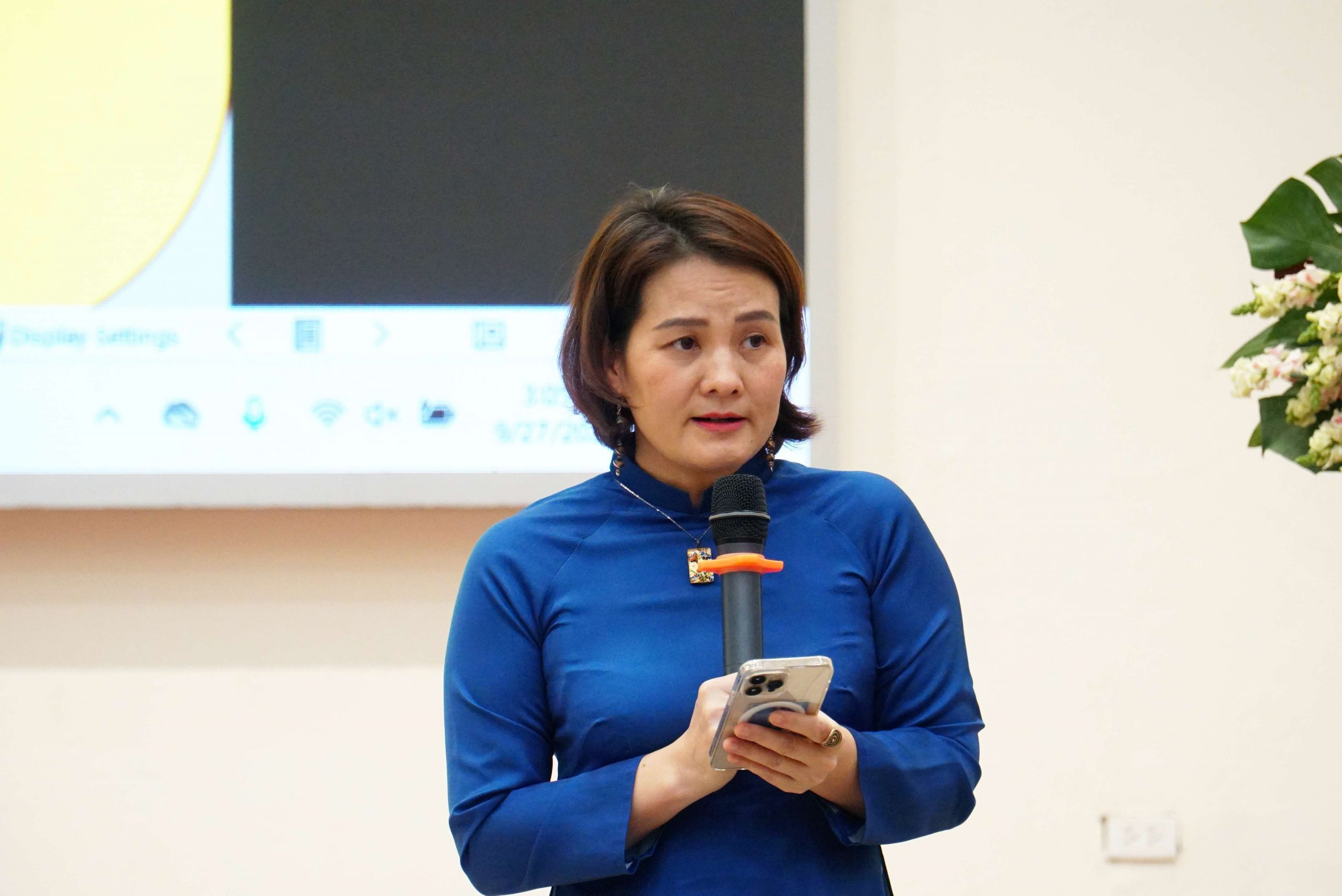
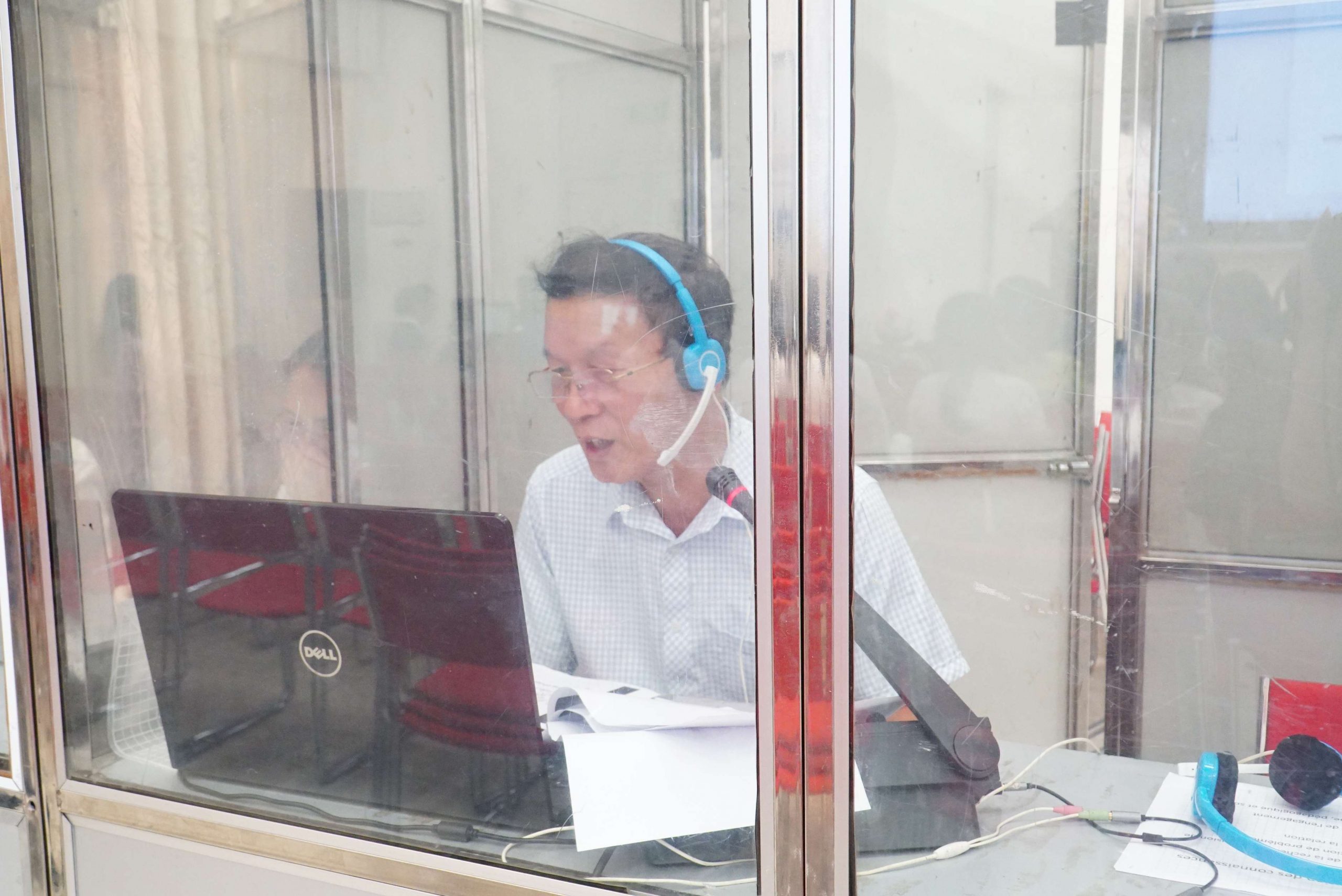
The conference concluded with a discussion session, where participants had the opportunity to exchange ideas and ask questions to the speakers. The event was a great success, opening up new research directions and opportunities for international collaboration in the field of linguistics. Attendees highly appreciated the quality of the presentations and the thorough preparation by the organizers. The conference not only served as an academic exchange platform but also provided an opportunity for researchers to connect, build collaborative networks, and develop future joint research projects.
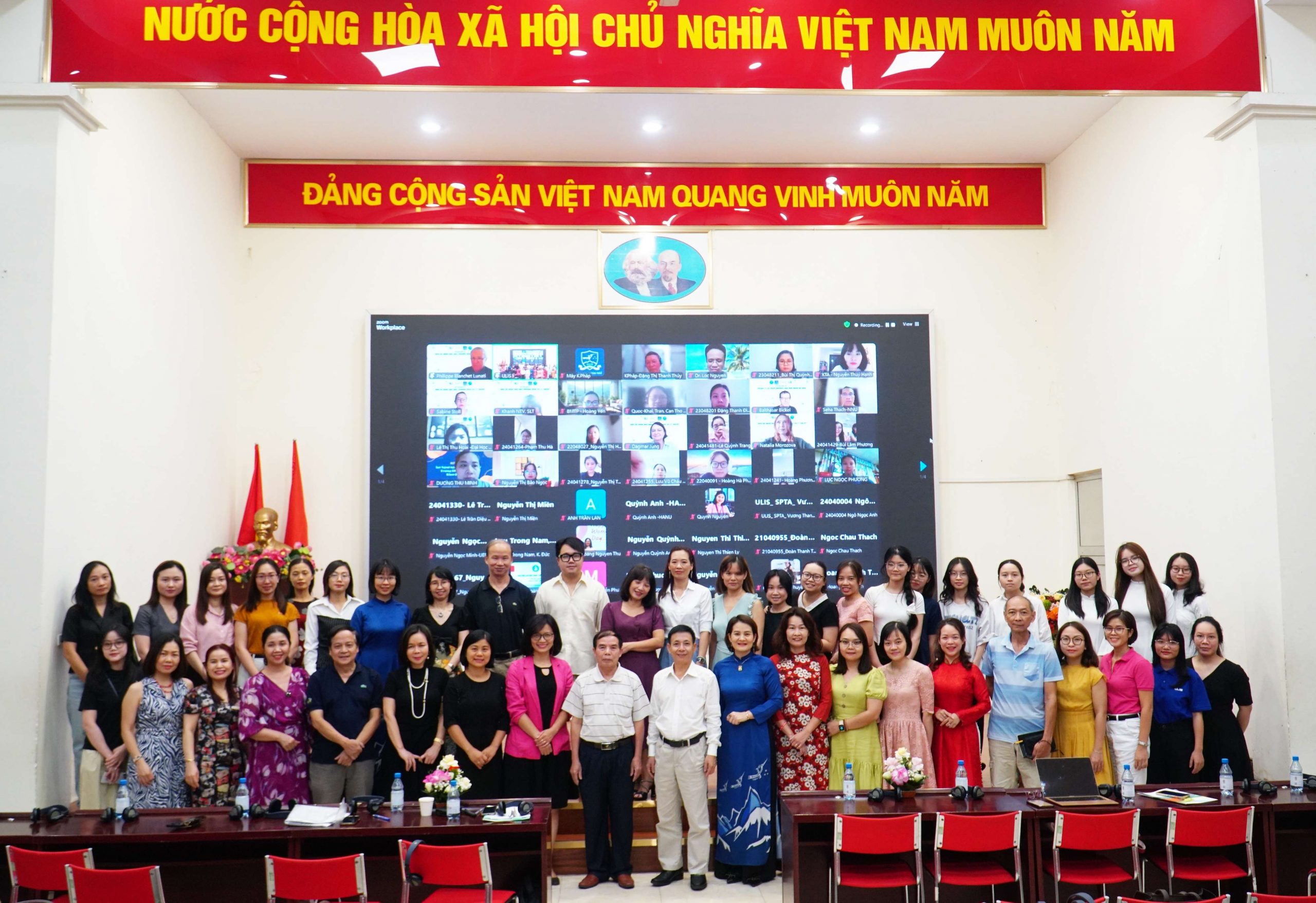
The event highlighted the role of the University of Languages and International Studies – Vietnam National University, Hanoi, in promoting linguistic research and providing opportunities for both domestic and international scholars and researchers to meet, exchange ideas, and collaborate. The conference also offered students, graduate students, and doctoral candidates the chance to access the latest research, thereby enhancing their knowledge and research skills.
Khanh Huyen

